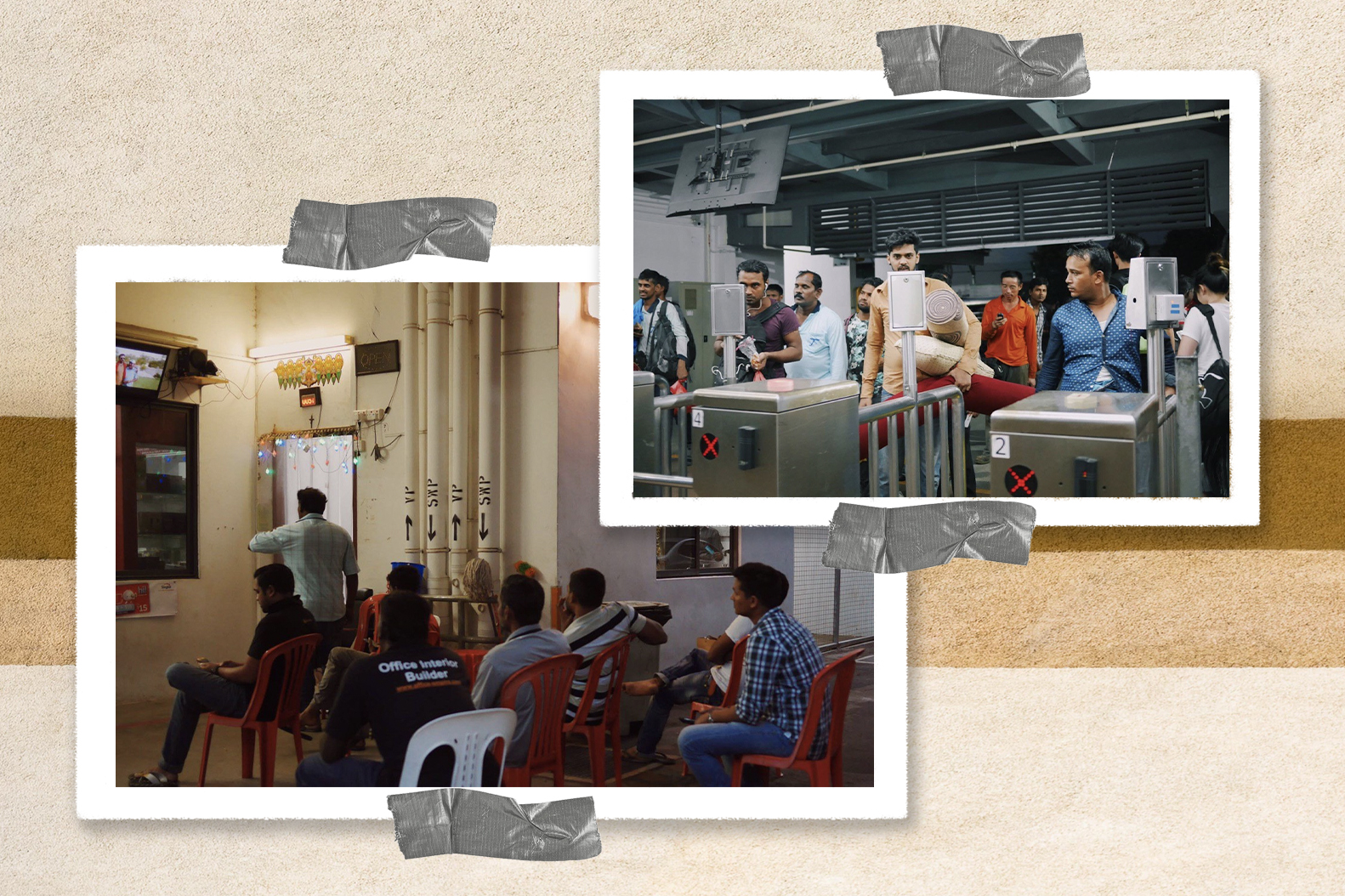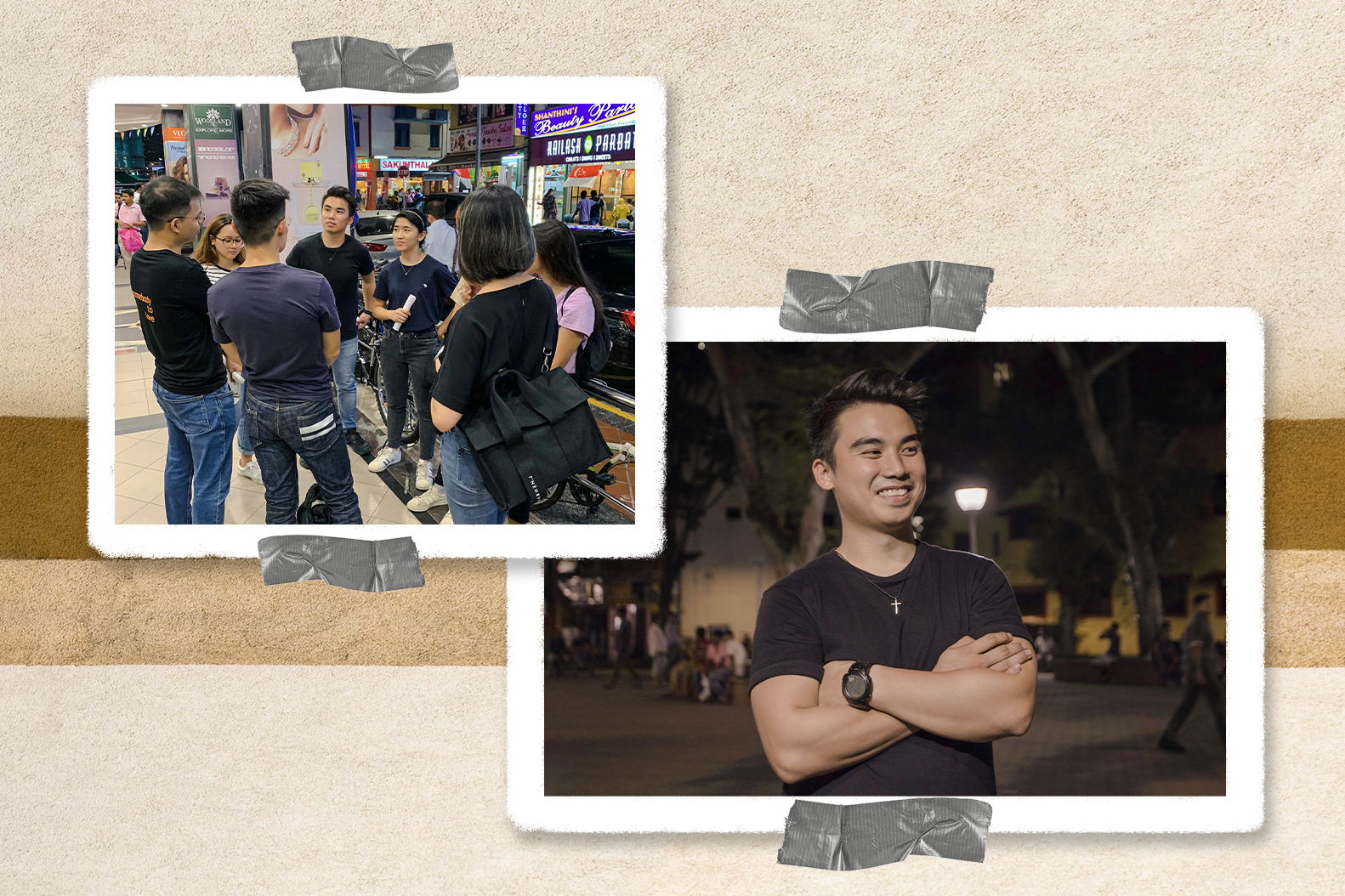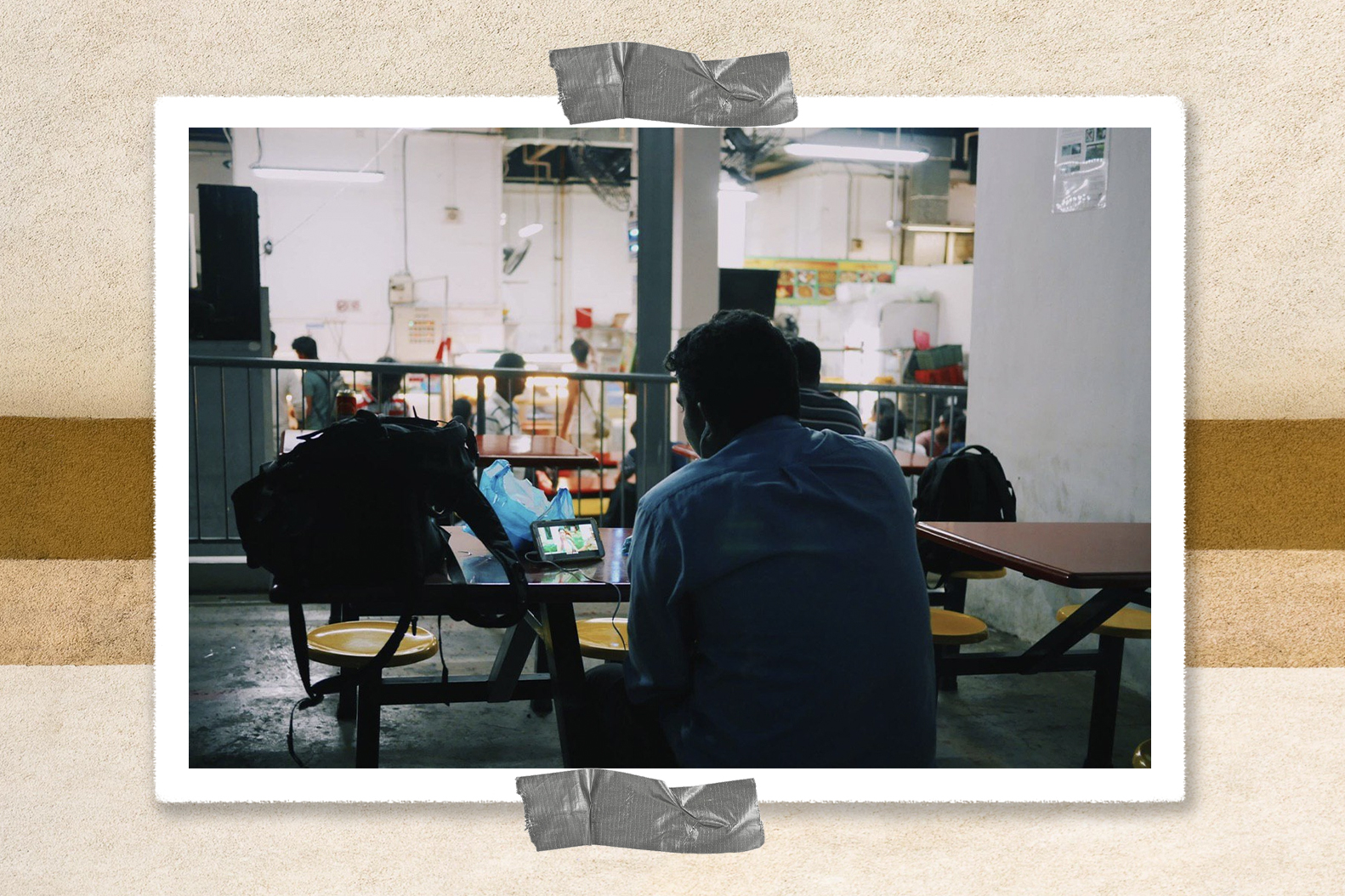Can talking to a person really make their day?
Since I’m the kind of person who highly treasures my personal space and me-time, my obvious answer to that would be, no. How can anyone enjoy having their privacy bubble popped?
But what if that person was alone in a foreign country for close to a decade, working in 10-hour shifts for a meagre wage with almost no days off, slogging to pay off thousands of dollars of debt?
The people I’m referring to are, of course, none other than our migrant workers.
The challenges they face not only include workplace injuries, bad nutrition, poor housing conditions, unpaid salaries and minimum protection of rights, but also fearful stares and prejudices.
During a learning journey organised by social enterprise Migrant x Me, I had to come face to face with my own biases towards this under-appreciated community.

In the middle of Little India lies Lembu Square (also known as Bangla Square), where many Bangladeshi migrant workers gather. Here, they shop for food and sit down to talk to loved ones on their phones.
We ended up approaching one of these migrant workers to strike up a conversation. To my surprise, the man we talked to was very welcoming.
He shared about his plastering job and how he recently came back from getting married in Bangladesh. Though his English was broken, he was patient in communicating with us and took the time to listen to us as well.
While I don’t know how much of a difference or impact that one conversation could have made in his life, I came away knowing more about a man I would have otherwise ignored. And perhaps he, too, would have come away with the feeling that there are people in this nation who care for him.
You’d be surprised at how a little smile can go a long way.
During the learning journey, I also got to know Seah Cheng, a business development executive at Migrant x Me who shared how a smile had changed his life.

He was at his lift lobby one day when he saw a migrant worker and remembered how a friend had advised him to just try smiling at migrant workers, promising him that he wouldn’t regret it.
After smiling at him, the migrant worker approached Cheng to shake his hand and asked which floor he stayed on. Hesitating, Cheng told him but was still unsure if he should have done so.
Wondering why he asked, Cheng waited in nervousness for his response, only to be surprised. The migrant worker had intended to call his friend who was carrying out the lift repairs to bring the elevator down for Cheng if he needed to head to a high floor.
Cheng felt ignorant and foolish for how he had assumed the worst. And surely enough, Cheng did not regret smiling at the migrant worker that day.
Cheng shared another incident where he approached a migrant worker sitting on a bench. Wanting to face the worker while talking, Cheng proceeded to sit on the floor opposite him. But as Cheng was about to do so, the worker stopped him.
It turned out that his migrant worker friend didn’t want him to sit on the floor, telling Cheng in broken English that his own pants should be dirty instead, while Cheng’s pants should remain clean.
This was just one of the many stories Cheng shared with us that night. It made me realise that marginalised communities have often come to accept the mindset that they are lesser than others.
Cheng tells me that he, too, went through a process of reviewing his own perceptions towards migrant workers after going on a learning journey organised by Geylang Adventures.
So convicted by the need to help others understand this community better, Cheng jumped at the chance to work with Migrant x Me when the opportunity presented itself.
Although he is still new to the social enterprise, Cheng pointed out how the various experiences he has had have helped him to better love migrant workers.
He said: “Through my work, I’ve come to know God’s love for (the migrant workers). I’ve come to understand how God is near the lonely and the brokenhearted.
“It’s like when you look at one of those loveable kids, and the thought that comes to your head is ‘wow, their parents must really love them’.”
“God is bringing me through a season of loving people and blessing people,” Cheng shared, explaining how he came to truly see God’s love as more than just sharing the gospel.
“In the past, I wasn’t loving His people or blessing the people; I was just evangelising to clear a quota. Showing God’s love through our lives is a core aspect we can’t miss out.”
We’re called to love our neighbours (Mark 12:30-31), which includes the marginalised and foreigners in our midst. But I realised that I’ve not extended the same love and grace that Cheng and the rest of the Migrant x Me team have shown towards migrant workers.
Loving a migrant worker can come in the form of a simple smile and thank you, an unassuming chat or a cold drink on a hot day. But it could also come in the form of taking time to understand a person and tearing down prejudices we’ve unknowingly harboured against a community.
Through this experience, I’ve come to understand the powers of befriending a person. I’d say a simple conversation would definitely do more than just make their day – it would make them feel loved, welcomed and appreciated.
If you’d like to find out more about Migrant x Me, you can follow them on Facebook or Instagram. Or join them for their next learning journey on September 20, 2019.
- What are some perceptions you have of migrant workers?
- Do you have any migrant worker friends?
- How can you show love to migrant workers in your midst today?









